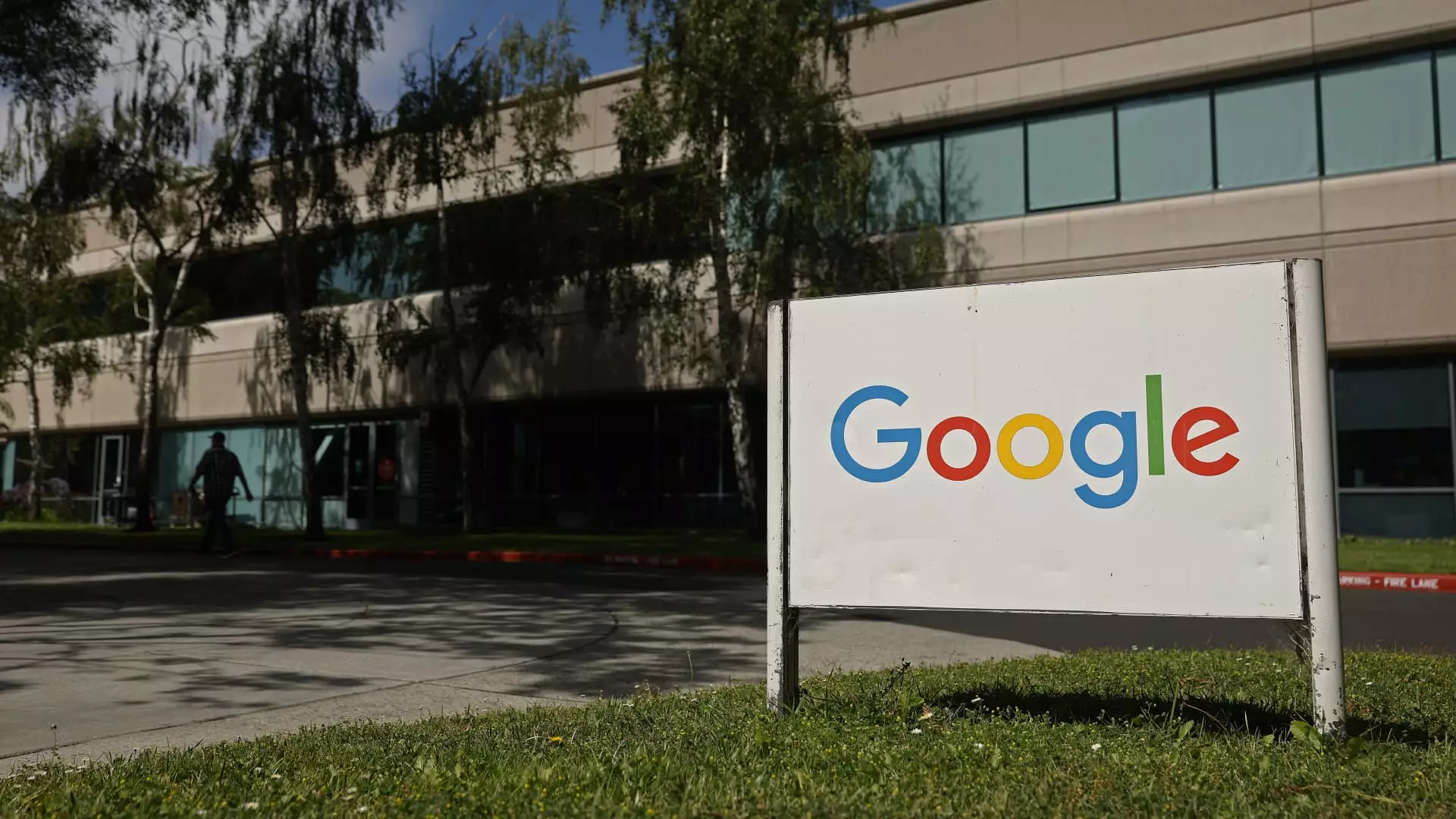In a landscape often characterized by cautious optimism or skepticism, Alphabet’s latest earnings challenge us to re-evaluate the trajectory of artificial intelligence. The company’s robust second-quarter results do more than showcase impressive financials; they reveal a deep-rooted confidence in AI’s potential to fundamentally reshape the tech industry—and perhaps, the economy at large. Far from a fleeting trend, Alphabet’s aggressive investment hike from $75 billion to $85 billion signals a decisive conviction that AI remains in its early innings. Yet, beneath this bullish veneer lies a subtle but critical truth: the true magnitude of AI’s economic impact has been underestimated, and Alphabet’s lead might just be the harbinger of a new mega-trend.
This isn’t just about more powerful chips or smarter algorithms; it’s about the strategic patience of a global corporate giant betting multibillion-dollar resources on a future where AI becomes the core driver of productivity, innovation, and economic competitiveness. Investors who see this move as merely another tech spending spree are missing a vital point: Alphabet’s AI investments reflect a long-term vision that positions it at the forefront of a technological revolution unlikely to slow down anytime soon.
The Real Power Play: Massive Investment as a Strategic Weapon
Companies like Google have long understood that dominance in digital services depends on continuous innovation. The recent uptick in capital expenditure, now set at $85 billion, isn’t just about scaling existing offerings; it’s about securing a moat around their AI capabilities. As Henry Ford would have appreciated, those who invest early and heavily often shape the future landscape—without waiting for market confirmation. Alphabet’s boldness indicates recognition that the AI “arms race” is not a temporary skirmish but a sustained strategic effort, where those who lead will reap exponential rewards.
What sets this apart is the scale of their commitment—more than enough to outpace competitors who might be content with incremental advances. The focus on cloud infrastructure, training large models like Gemini, and integrating AI deeply into search and YouTube, shows a blueprint for a future where AI is embedded into every user interaction. One must question the narrative that AI is still a “rising” trend; in truth, it’s becoming a core component of business architecture, with Alphabet acting as a pioneering force rather than a mere participant.
Wall Street’s Mixed Signals: Are We Overselling or Underestimating?
Financial markets have a tendency to react emotionally, often overreacting to short-term earnings or underestimating long-term potential. Yet, Alphabet’s results reveal a more grounded picture—one of strategic empowerment. Wall Street analysts depicted Alphabet as a trailblazer, emphasizing that this wave of AI-driven growth could extend across other tech giants, fostering a broader industry upgrade.
However, it’s worth questioning whether the optimism is fully justified or if it borders on overconfidence. The $85 billion capex projection, while impressive, remains predicated on demand that continues to grow; supply chain constraints and global shortages could impede actual realization. Who truly benefits is a matter of perspective—while chipmakers and cloud providers stand to profit, smaller players and traditional industries might face an insurmountable challenge in catching up. This concentration of AI-driven investment might inadvertently cement Alphabet’s dominance, making the AI “arms race” less of a race and more of a strategic decimation of competitors.
The Broader Implication: A Shift Toward Tech-led Economic Growth
A critical question lies beneath the surface: what does this relentless push towards AI investment imply for economic policy and societal growth? The answer leans toward a cautious optimism rooted in center-right among liberalist principles—embracing innovation, recognizing private enterprise’s role, but wary of unchecked monopolistic tendencies.
Alphabet’s heavy investments are not just an illustration of corporate audacity—they reflect an underlying truth about modern capitalism: technological innovation is the engine of prosperity. By prioritizing infrastructure, cloud services, and AI-driven platforms, Alphabet recognizes that value creation now hinges on strategic foresight and capital deployment. This, in turn, incentivizes policy frameworks that protect competition while fostering innovation—a delicate balance crucial to ensuring AI benefits a broad swath of society, not merely the few.
In a world where corporate giants lead the charge in developing groundbreaking AI, a center-right stance would advocate for a regulatory environment that encourages innovation without stifling it. Investment in AI should be welcomed, but accompanied by safeguards to prevent monopolistic overreach and preserve competitive markets. Only then can the true economic potential of AI be realized—not as a tool for wealth redistribution among the ultra-wealthy, but as a catalyst for overall societal advancement rooted in free enterprise.
The Future Is Clear: Alphabet’s Confidence Signals a New Economic Paradigm
Viewing Alphabet’s results through a critical lens, it becomes evident that AI is no longer an emerging frontier but a fundamental force shaping the near future. Its willingness to further increase spending and lead the AI charge underscores a confidence in the transformative power of this technology. Investors and industry players must recognize: the current hype is just the beginning.
This confidence also hints at an emerging paradigm where large corporations, empowered by strategic investments and technological breakthroughs, will dominate the global economic landscape. The implications for innovation, competition, and economic growth are profound. While concerns about market concentration and the need for balanced regulation persist, there’s no denying that the current AI surge represents a pivotal shift—one that will define the next era of capitalism for decades to come.

